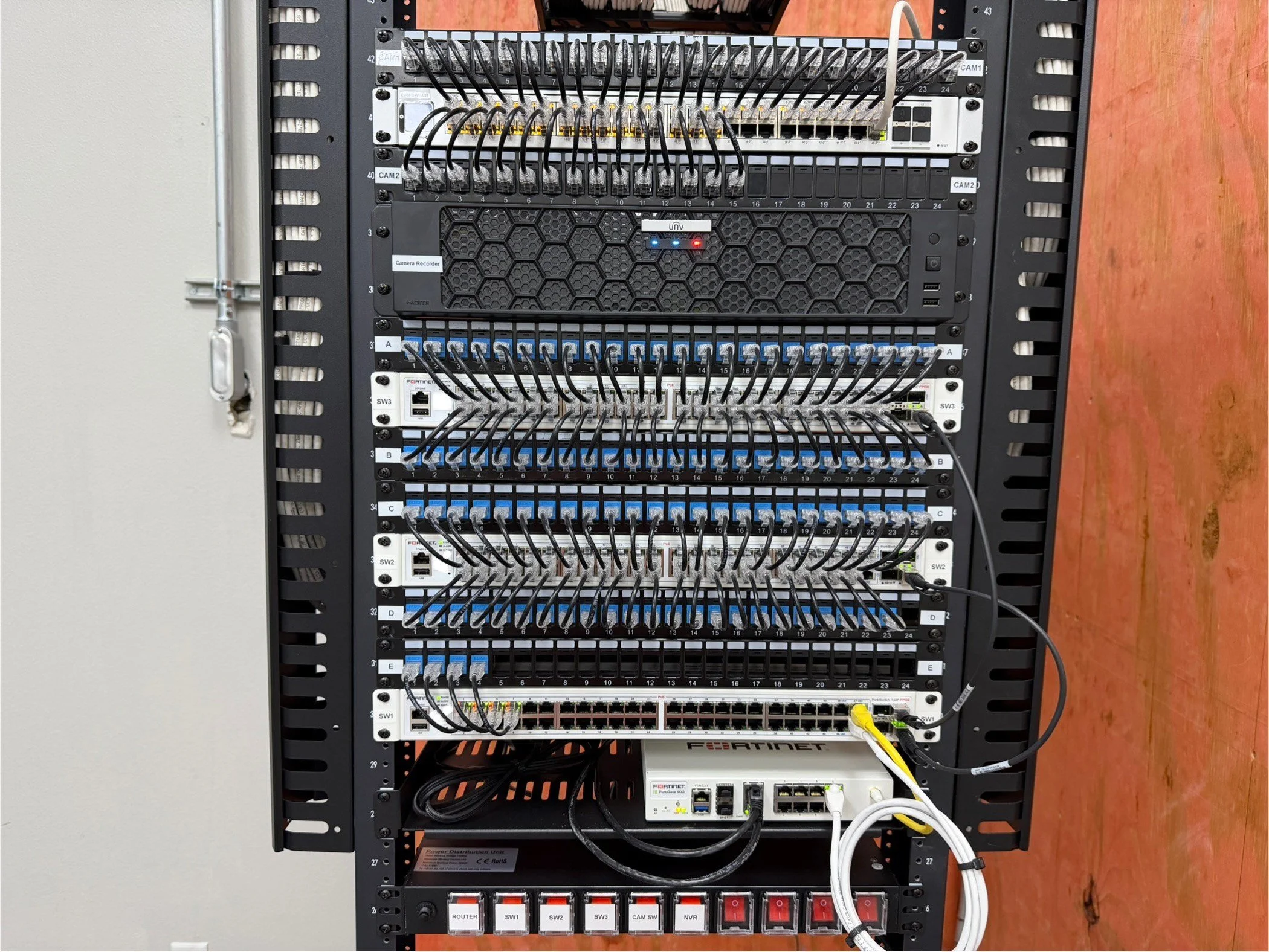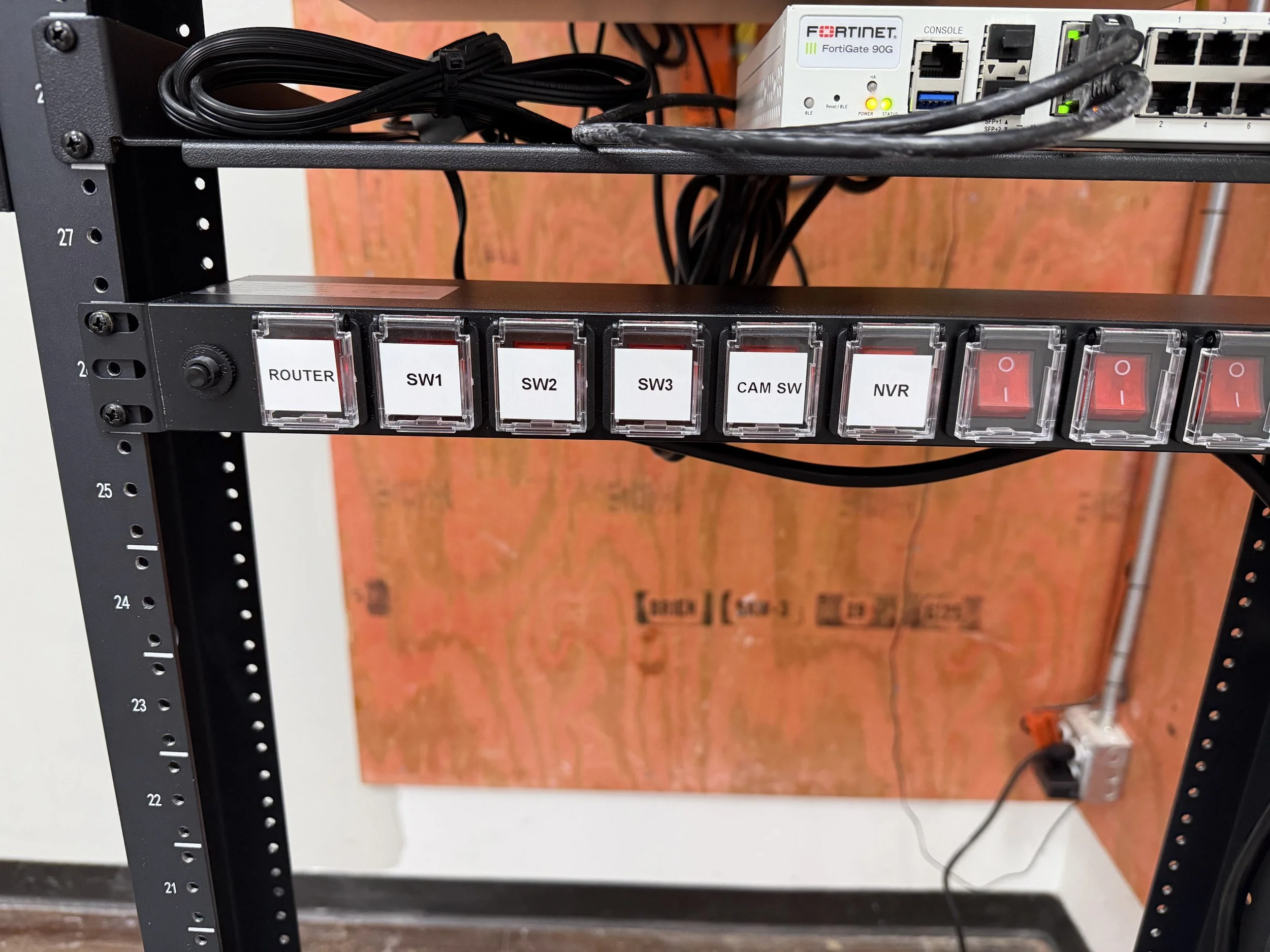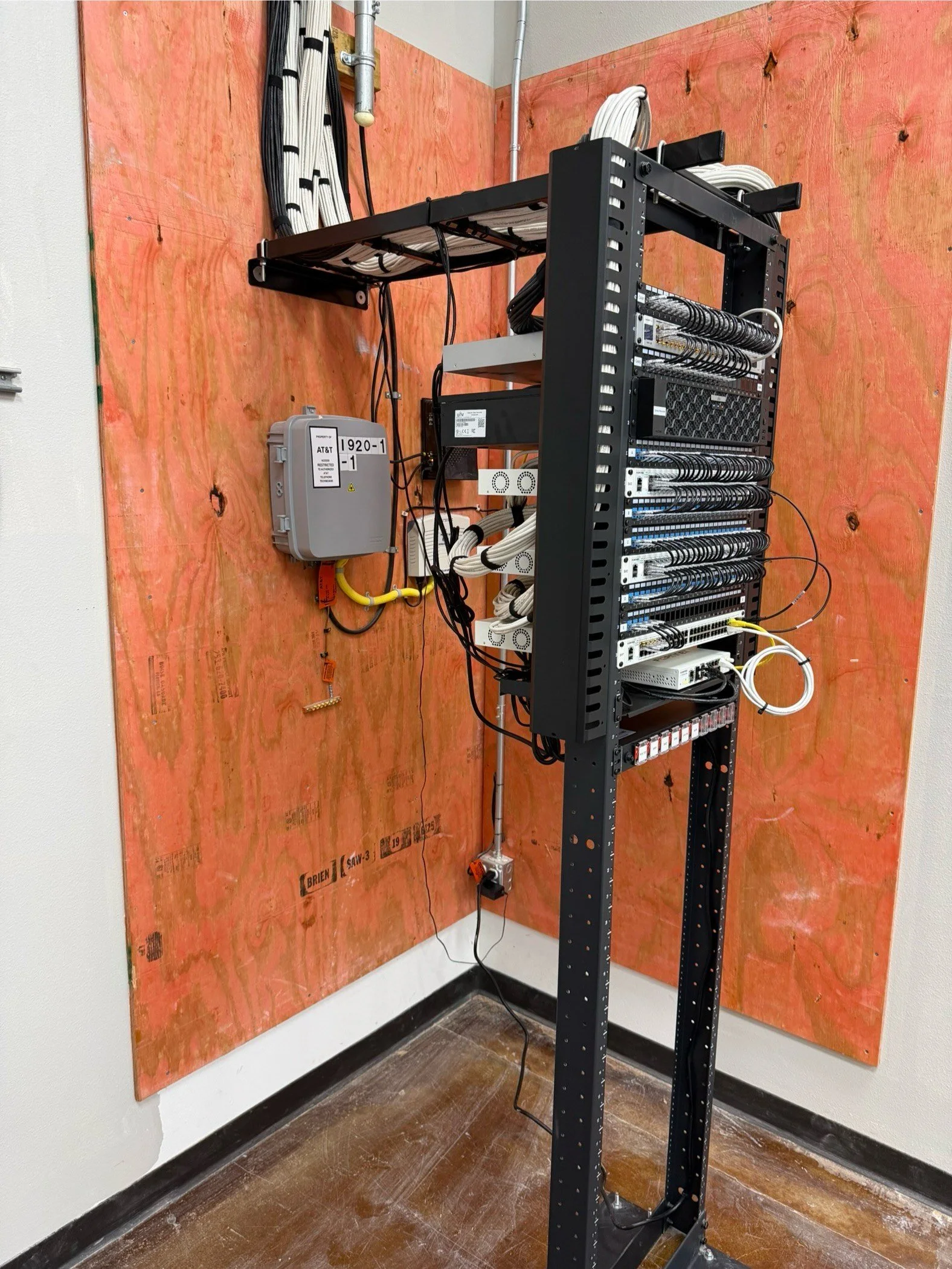Hiring a Licensed Low-Voltage Contractor
If your building relies on performance, compliance, and long-term reliability, here's why choosing a licensed low-voltage contractor isn’t just recommended — it’s essential.
When you’re building out a new commercial space or rennovating, low-voltage systems are no longer optional — they’re the backbone of your security, productivity, and daily operations. Cameras, access control, Wi-Fi, cabling, and network equipment all fall under low-voltage systems, and the quality of these installations directly impacts your business.
Code-Compliant Installations
Hiring a licensed low-voltage contractor ensures every part of your installation meets Texas building and electrical codes. Before pulling any cable, we walk the client through the planned pathways to confirm routing, accessibility, and long-term serviceability. When cabling passes through fire-rated walls, we install proper sleeves and fire-caulk the penetrations to maintain the wall’s rating and avoid inspection issues.
We also follow cabling standards that require proper separation from electrical lines to prevent interference and ensure all runs stay within the 300-foot maximum distance for consistent network and camera performance. These code-compliant practices protect your building, prevent costly rework, and ensure your system operates reliably from day one.
Proper Low-Voltage System Design
A licensed low-voltage contractor designs your system intentionally from the start. We plan access point placement using RF behavior to avoid dead zones, design camera coverage to eliminate blind spots, and size your switching environment for bandwidth and PoE needs. Power budgeting is also critical — we calculate total device load and stabilize the system with a backup battery installed at the bottom of the rack and a managed power switch in the center for remote rebooting and surge protection. This upfront engineering prevents change orders, network bottlenecks, and downtime once the building is operational.
Professional Termination, Documentation, and Labeling
One of the biggest differences clients notice when working with a licensed low-voltage contractor is the level of documentation and precision that goes into every stage of the installation. We provide each client with a fully updated blueprint that includes cable numbers, device labels, and camera identifiers — along with the camera’s intended field of view. Access point placements are also mapped on the blueprint, showing both physical location and projected coverage patterns so the client can understand exactly how the network has been engineered.
Every cable we run is labeled on both ends, and every wall plate is matched to its corresponding cable number. This ensures complete traceability and simplifies future service or upgrades. At the end of the project, we test each cable from end to end using professional certification equipment to verify performance, continuity, and signal quality. This testing process eliminates guesswork and ensures that every connection in the building is fully operational and compliant with industry standards.
Organized IDF Rooms Improve Network Performance and Uptime
An organized IDF room is the backbone of a stable, high-performing network. When a licensed contractor builds your rack and infrastructure, every component is intentionally placed to promote airflow, simplify maintenance, and protect equipment from unnecessary strain. Cabling is routed cleanly, separated from power lines to avoid interference, and secured to prevent stress on connections. Patch panels are mapped and arranged logically, and cable management is implemented to keep the rack neat, accessible, and compliant with best practices. These details may seem minor, but they directly influence how reliable your network will be. A clean, well-structured IDF room reduces downtime, makes troubleshooting far easier, and ensures that your security and networking systems perform consistently for years to come.
Bluebonnet Cameras & Cabling
If you’re a general contractor, builder, or project manager looking for a low-voltage partner who understands pathways, code compliance, documentation, and clean handovers, we’re ready to support your next new-construction project. Our team delivers fully engineered systems—including cabling, cameras, access points, network racks, power management, and complete blueprint documentation—so your builds stay on schedule and pass inspection without surprises.
Partner with licensed low-voltage cable contractors in Austin / Houston, Texas—and ensure your next project is built on a rock-solid foundation.
Contact us today to discuss upcoming bids, plans, or project timelines.


